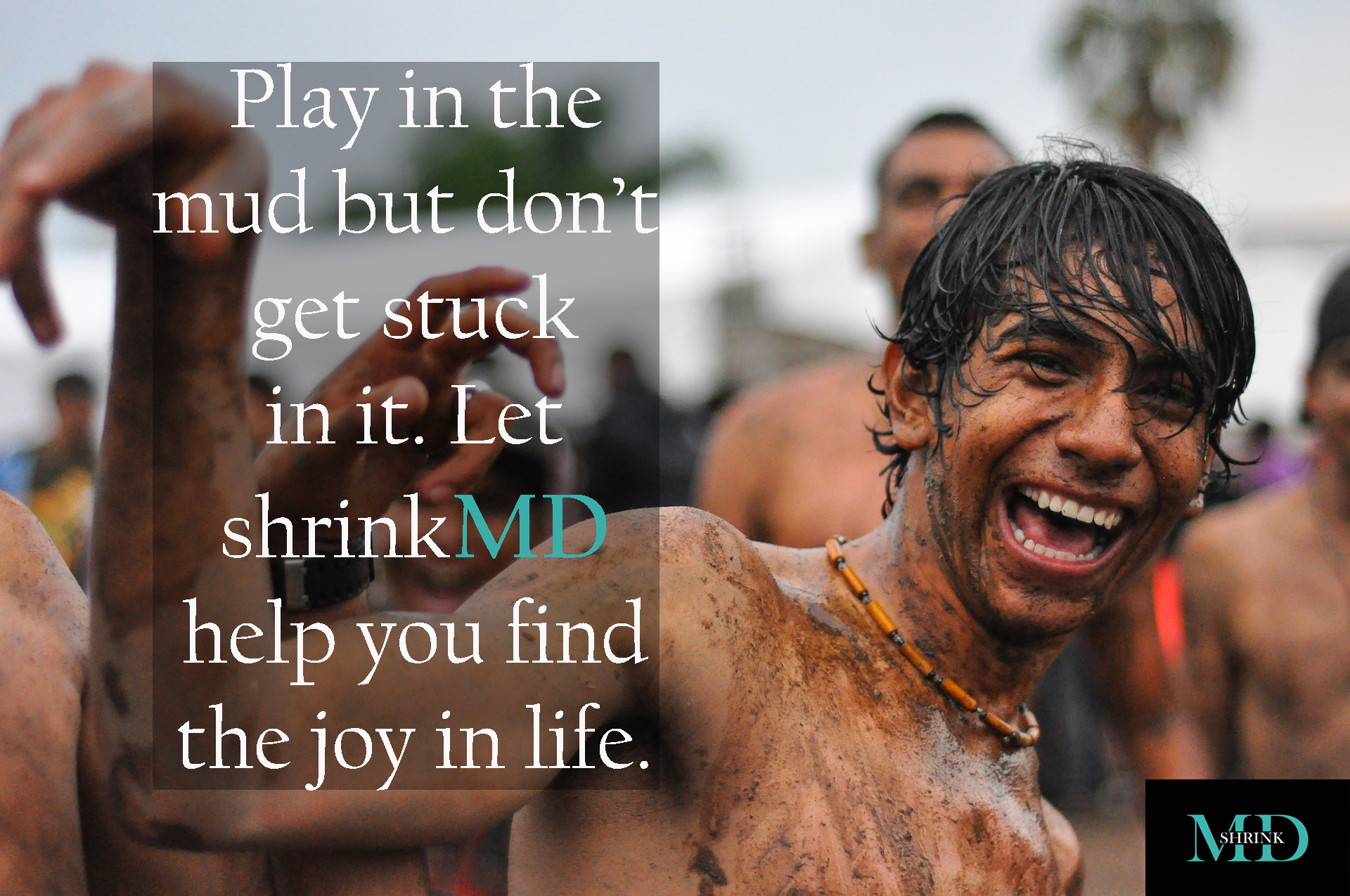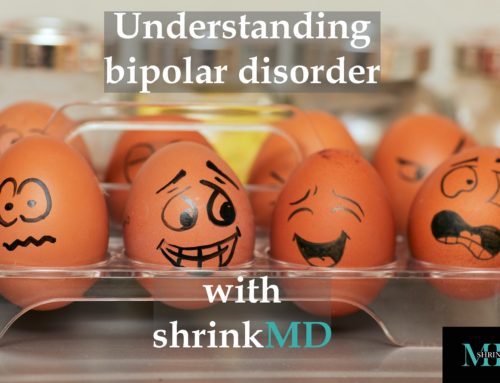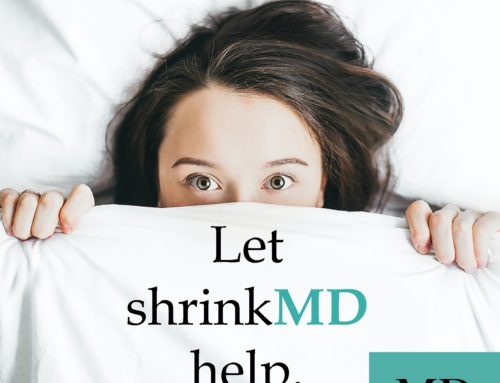Regardless of their background or demographic group, anyone can experience depression- an acute psychological ailment tightly bound to emptiness and low mood. Even the most accomplished individuals such as athletes or business professionals are susceptible to its impact just like young children or college students trying to cope with stressors related to academia. The condition’s effects vary from general sadness to suicidal thoughts accompanied by a lack of energy and alterations in diet. The consequences of depression can significantly reduce your overall enjoyment in life- something everyone deserves regardless of their circumstances. That’s why it’s important to understand depression and the related nuances.
As experts in the field, the committed professionals here at shrinkMD are dedicated to improving individuals’ general wellness by offering targeted interventions specifically designed for treating depression related mental health challenges effectively. Throughout this article, we will illustrate what indicators set one apart as being someone with depressive tendencies whilst paying particular attention in explaining how these undesirable feelings may severely interfere with daily living. Ultimately, we are certain that our highly experienced team here at shrinkMD assist you to overcome and understand depression to improve your quality of life.
Definition:
Depression is not always predictable as it can present differently in everyone. While there are many kinds, in its basic form, depression is a mental illness illustrated by persistent sadness, hopelessness, and emptiness. It includes a loss of interest or pleasure in activities that may have once been enjoyable. Concurrently, although peculiar, it can cause physical symptoms such as fatigue, appetite changes, and sleep disturbances. Depression can be caused by many different factors which can include genetics, brain chemistry, and life events such as trauma or loss to name a few. That’s why at shrinkMD we utilize the biopsychosocial model of treatment which is explained on our blogpost. The key to proper treatment is to understand depression.
Types of Depression:
- Major Depressive Disorder: Commonly experience a persistent feeling of sadness, hopelessness, and a loss of interest in activities.
- Bipolar Disorder: A mood disorder characterized by periods of highs (mania or hypomania) and periods of lows (depression). Furthermore, the depressive episodes of can be indistinguishable from major depressive disorder. The mania is what defines this is as bipolar disorder not just the ups and downs in moods as is commonly misunderstood. Understand more about bipolar disorder in my blog post here.
- Seasonal Affective Disorder (SAD): This type of depression occurs during certain times of the year, typically when there is less daylight line in the winter months. This can be a result of dysregulation of neurotransmitters that occurs based on circadian rhythm changes linked to daylight changes.
- Postpartum Depression: The type of depression that occurs after the birth of a child. The hormonal dysregulation that occurs throughout pregnancy and after delivery are thought to be contributing factors. Postpartum depression has a greater likelihood in someone who typically is prone to depression.
- Psychotic Depression: Sometimes depression can get bad enough to where a person can experience delusions or hallucinations.
- Situational Depression: This type of depression occurs in response to specific events or situations, such as the loss of a loved one or a job.
Symptoms:
Just as each person is unique, the way a person experiences depression can be unique. Depression can manifest in different ways for different people, but some common symptoms of depression include:
- Persistent sadness, emptiness
- Wanting to isolate and feeling lonely
- Loss of interest in activities you used to enjoy
- Changes in appetite or weight
- Difficulty sleeping or oversleeping
- Fatigue or lack of energy
- Feelings of worthlessness or guilt
- Feeling hopeless or helpless
- Difficulty concentrating, making decisions, or remembering things
- Thoughts of death or suicide
- Thoughts of wanting to run away
- Irritability, agitation, or anger in some cases
- In its most severe form, some people can experience psychosis
Concurrently, in some cases, depression can lead to physical symptoms such as:
- Headaches
- Stomachaches
- Joint pains
- Lack of energy
- Changes in menstrual cycle
- Decreased libido
- Increased sensitivity to pain
If you have been experiencing several of these symptoms for more than two weeks and they are interfering with your daily life, it may be a sign of depression.
Relief from Depression:
The good news is depression is treatable. If you understand depression, you understand there is a plethora of evidence-based treatment options available to help manage it giving no reason to just live with it. Utilizing them can aid in improving quality of life. When lifestyle changes and other holistic treatments aren’t effective, other options can include medications, psychotherapy, or a combination of them all. Many people falsely believe psychiatrist only encourage medications as treatment, when in fact it’s instructed to try lifestyle changes first and foremost. Lifestyle changes such as regular exercise, a healthy diet, and adequate sleep are just some of the examples of treatment modalities primarily recommended. I’ve talked about some of these things in my blog post about 20 tips on emotional resilience.
At shrinkMD, we offer personalized treatment plans that are tailored to your specific needs and goals. Our compassionate and experienced mental health professionals will work with you to create a treatment plan that addresses your unique needs utilizing the biopsychosocial approach to treatment as I discussed in a blog post here.
Ways to Self Manage Milder Depression:
While seeking professional help is crucial for moderate to severe depression, there are several self-management strategies that can be of help in milder cases. These should not be the only thing utilized in moderate to severe cases as professional help is recommended in conjunction. Some suggestions to help some symptoms of depression include:
- Exercise: Regular physical activity can help boost mood and reduce symptoms of depression.
- Eat a healthy diet: It should be universally known by now that diet plays a big part in our mental wellbeing. In grade school it was taught a well-balanced diet consisting of fruits, vegetables, and whole grains can help reinforce our overall health. This nutritional life hack applies to mental health as well.
- Practice good sleep hygiene: Getting enough sleep is important for managing depression. Establish an appropriate sleep schedule, avoid screen time before bed, and create a relaxing sleep environment.
- Engage in enjoyable activities: Participating in activities you enjoy, such as hobbies or social events, can help improve mood and decrease symptoms of depression.
- Practice mindfulness or meditation: Mindfulness and meditation techniques can help reduce stress and improve mood.
- Connect with others: Spending time with supportive friends or family members, or joining a support group, can provide a sense of connection and help reduce feelings of isolation.
Self-management strategies can be efficacious in mild depression. However, in moderate to severe forms they may prove to be trivial. If you are experiencing symptoms of depression, it’s important to seek professional help like that at shrinkMD. We determine the best course of treatment for you based on a comprehensive assessment. For a more comprehensive list of self-management strategies, refer to my practical tips blog here.
Conclusion:
Living with depression or any debilitating mental illness can be an extraordinary challenge. However, precise treatment can help alleviate symptoms and help improve overall quality of life. Here at shrinkMD, we make it a point to understand depression and the destruction it can cause which helps us empathize with our patients. That’s why we advocate for a tailored diagnosis and personalized treatment plans that use comprehensive strategies. Managing a mental illness on your own may not always be successful depending on the severity and type. That’s why it’s crucial that those suffering from these conditions seek assistance from professionals. With telepsychiatry options readily available, help is always within reach, and no one should have to go through their mental health battles alone.
At shrinkMD, we recognize the importance of providing you support along your journey to a better quality of life. Our team of experts hold sessions across multiple states; refer to the list here for more information on which states.
If you would like to read more and further understand depression, read the article by National Alliance on Mental Illness here.
This or any information on our website is for educational purposes only. It is not intended to diagnose, treat cure, or prevent any disease or illness. You should always talk to a licensed professional for any questions, concerns, or treatment.







Leave A Comment